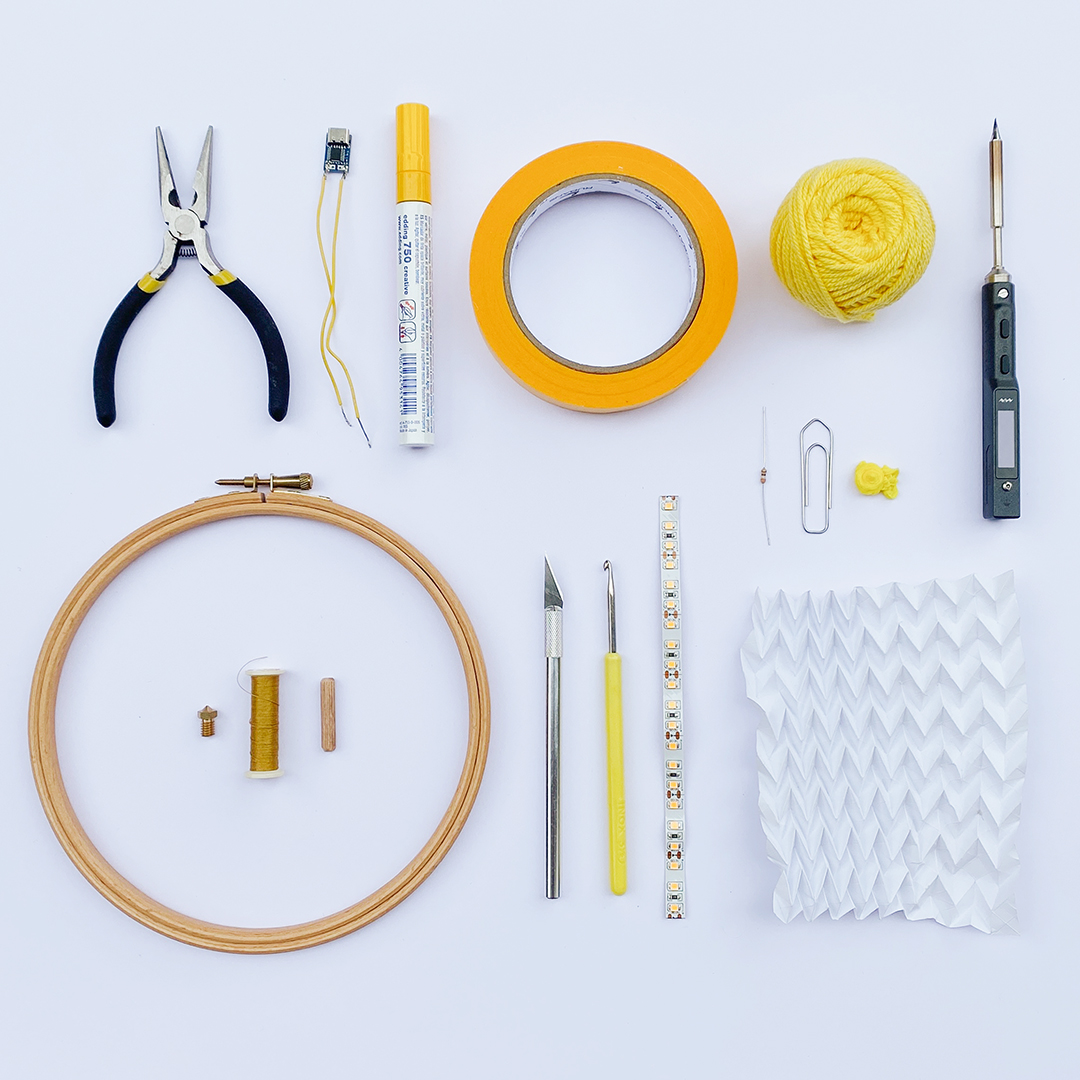Workshop at NordiCHI 2024
Everyone is a Maker [2], yet not everyone identifies as one [1,3]. To explore the diverse world of making, we warmly invite makers*, crafters*, and tinkerers*, as well as those connected to making topics or practices, to join our workshop “Makers*, Crafters*, Tinkerers*: How Identities and Biographies Come into Being” at NordiCHI 2024.
During this half-day, on-site workshop, we will discuss identities of makers*, crafters*, and tinkerers* by working with snippets of participants’ work. Engaging with these snippets allows us to collect entryways, turning and tipping points, and to discuss which conditions, characteristics, or experiences were helpful for or hindering becoming makers, crafters, or tinkerers, and how identities changed over time.
Participants* will benefit from reflecting on their own maker*-crafter*-tinkerer* identity, sharing experiences with others, and building a network of like-minded individuals. The community will gain insights into the supportive and challenging aspects of making, crafting, and tinkering, and how we can make these activities more inclusive, especially for underrepresented groups such as women, older adults or minoritized and low-income youth.
Our workshop will include a mix of individual activities, pair work, and group discussions. Rather than seeking the “best” identity, we aim to celebrate the diversity of experiences and stories within the making community.

Participate
We are excited to announce the Makers*, Crafters*, Tinkerers*: How Identities and Biographies Come into Being workshop:
Sunday, October 13, 2024 / 8:30 am get-together, 9:00 am to 1:00 pm workshop / at Ekonomikum, Uppsala University (https://www.uu.se/en/campus/ekonomikum)
This workshop welcomes all makers*, crafters*, and tinkerers*, whether you are an expert or a beginner. To express your interest in participating, we invite you to share an anecdote from your making journey. For example: What inspired you to start a particular craft, learn a specific practice, or master a certain tool? Was there an event, incident, or encounter that changed the direction of your journey as a maker, crafter, or tinkerer? What or who influenced your identity in this creative realm?
Our workshop will focus on both individual reflections and collective discussions. To facilitate this, we ask participants to bring a piece of work they have created, representing their unique way of making, crafting, or tinkering. This artifact does not need to be perfect; it can symbolize a particular practice, a challenge, or a significant event in your making journey.
We look forward to your stories and the opportunity to explore the rich tapestry of experiences within our creative community.
Submit
Please send your application via email to
team@all-makers.at
We welcome various types of submissions for the Makers*, Crafters*, Tinkerers*: How Identities and Biographies Come into Being workshop. You can submit a written anecdote (maximum 2 pages, ACM manuscript format), a comic, a visual piece (e.g., an annotated picture), or a video (maximum 2 minutes).
Please note that submissions will not be made public. They will be reviewed by the organizers to ensure they fit the workshop’s theme and complement the overall set of submissions. At least one author of each accepted submission must attend the workshop, and all participants must register for both the workshop and at least one day of the conference.
Submissions are accepted on a rolling basis. To benefit from the early bird rate for the conference, please submit your workshop proposal by Friday, August 9, 2024. You will be notified of acceptance by August 13.
Organizers
Katrin Nora Kober (she/her) is a researcher in the Human-Computer Interaction division at the University of Salzburg, Austria. Her work focuses on how maker identities are formed, with a particular aspiration to include groups, sites, and practices that are sometimes overlooked in this context.
Georg Regal (he/him) is a scientist at the AIT Austrian Institute of Technology. His research is focused on human augmentation, extended reality and interfaces for people with disabilities and how critical making and co-creation can be applied in these domains.
Verena Fuchsberger (she/her) is Postdoc at the Human-Computer Interaction division at the University of Salzburg, Austria. In her research, she focuses on human and nonhuman agency HCI and Interaction Design, driven by an interest in New Materialism.
Martin Murer (he/him) is a researcher at the Human-Computer Interaction division at the University of Salzburg, Austria. In his research he explores the experiential qualities of hybrid materials and tangible interactions.
Joanna Kowolik (she/her) has been engaged for years with the role of women* in traditional male domains and strives to promote an inclusive environment in makerspaces and a feminist discourse in making.
Nathalia Campreguer Franca (she/her) is a researcher at the Salzburg University of Applied Sciences and a PhD Student at the University of Salzburg, Austria. In her PhD, she explores how we can design opportunities for critical reflection through playfulness.
Dorothé Smit (she/her) is an assistant professor at the Vrije Universiteit Amsterdam. In the past four years, she has conducted several research activities in maker spaces to investigate the engagements of women and other underrepresented groups in technological making.
Fiona Bell (she/her) is a postdoctoral researcher in Computer Science at the University of New Mexico, working at the intersection of HCI, biodesign, and material science. Her research is focused on the design, development, and study of biologically-based materials and technologies that promote ecological care and sustainability.
Tara Capel (she/her) is a lecturer in Design Informatics at the University of Edinburgh. In her research, she explores how makerspaces can be designed in more inclusive ways to promote participation, and how the configuration of new spaces, which facilitate engagement with new tools and materials, can lead to new areas of design
Contact
References
[1] Nathalia Campreguer França, Dorothé Smit, Stefanie Wuschitz, and Verena Fuchsberger. 2021. The Women* Who Made It: Experiences from Being
a Woman* at a Maker Festival. Sustainability 13, 16 (Aug. 2021), 9361. https://doi.org/10.3390/su13169361
[2] Dale Dougherty. 2012. The maker movement. Innovations: Technology, governance, globalization 7, 3 (2012), 11–14
[3] Susan Faulkner. 2014. Women who make: Undercounted as Makers and underwhelmed by Makerspaces. Computer 47, 12 (Dec. 2014), 30–31.
https://doi.org/10.1109/MC.2014.373
